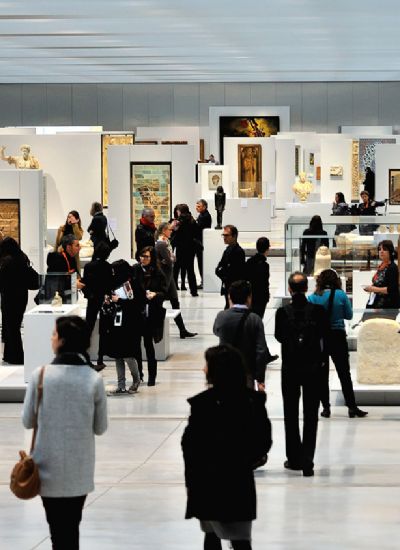qualitative adjective
Definition:
An adjective used to identify the qualities or features of a person or thing.
In contrast to classifying adjectives, qualitative adjectives are usually gradable--that is, they have positive, comparative and superlative forms.
See also:
An adjective used to identify the qualities or features of a person or thing.
In contrast to classifying adjectives, qualitative adjectives are usually gradable--that is, they have positive, comparative and superlative forms.
See also:
Examples and Observations:
- "He told us of the wonderful changes we children in Stamps had in store."
(Maya Angelou, I Know Why the Caged Bird Sings. Random House, 1969)
- "Pilots who flew over him saw a long, slim figure while observers on the ground, their visual aspect impaired by the slope and thus foreshortening the figure, saw him as squat and stocky."
(Pauline Furey, The Long Man. Trafford, 2006) - "On the isle of Guernsey, a small French lad named Apollos Rivoire, twelve years old, was taken by his uncle to the harbor of St. Peter Port."
(David Hackett Fischer, Paul Revere's Ride. Oxford University Press, 1994) - "The artist, a young man with short dark hair and a crooked nose, stands in a field of brown grass, a defiantly bored expression on his face."
(Nicholas Montemarano, "The Beginning of Grief." If the Sky Falls. Louisiana State University Press, 2005) - "He was the oldest, the tallest, the strongest boy in our gang."
(Davide Enia, On Earth as It Is in Heaven [2012], trans. by Anthony Shugaar. Farrar, Straus and Giroux, 2014) - "Ladies and Gentlemen, now you shall see a stupendous act none have witnessed before."
(Tracie Vaughn Zimmer, The Floating Circus. Bloomsbury, 2008)
- "I ran directly to the mirror in the bathroom.
"I was still a normal, ordinary boy."
(M.T. Coffin, Saber-Toothed Tiger. HarperCollins, 1998) - "Aurelia fit his first impression of her--a rare and unusual woman who didn't play by the rules, at least not until she'd examined them."
(Roslynn Griffith, Pretty Birds of Passage. Harper Monogram, 1993) - "We worked hard lugging wood, confiscating nails, and borrowing hammers to construct a very sturdy tree house."
(Joni Eareckson Tada, A Quiet Place in a Crazy World. Multnomah Books, 1993) - Identifying Qualitative Adjectives
"In the Collins COBUILD English Language Dictionary, an 'extra column,' beside the entry, adds the information that sturdy is a qualitative adjective, in all its senses; and that, in sense 1.2, it is usually used attributively--that is, before the noun--as in sturdy friends. (This pattern is clearer in an example such as they are sturdy supporters of the club, where sturdy goes with the verb support (= they support the club sturdily). If the adjective is used predicatively--that is, after the noun--the sense will typically shift to 1.1: the club's supporters are sturdy = 'strong robust people.')"
(M.A.K. Halliday and Colin Yallop, Lexicology: A Short Introduction. Bloomsbury, 2007) - The Subjective Nature of Qualitative Adjectives
"Journalists unconsciously add opinion and prejudice to stories through the use of generalities and qualitative adjectives. . . .
"Qualitative adjectives are those that apply judgment to the subject matter rather than describing something that can be observed. Angry is a qualitative adjective in that it is the application of the writer's judgment rather than the observation of behavior. Slamming the telephone down is a modifying phrase that describes behavior. It is also a more powerful image than angry. Description of attributes and action is simultaneously less judgmental and more powerful than the attribution of qualities. Words like normal, ordinary, unusual, and rare apply the journalist's (often unfounded) opinion to people and events."
(Travis Lynn, "Media Methods That Lead to Stereotypes." Images that Injure: Pictorial Stereotypes in the Media, ed. by Paul Martin Lester and Susan Dente Ross. Praeger, 2003)




















